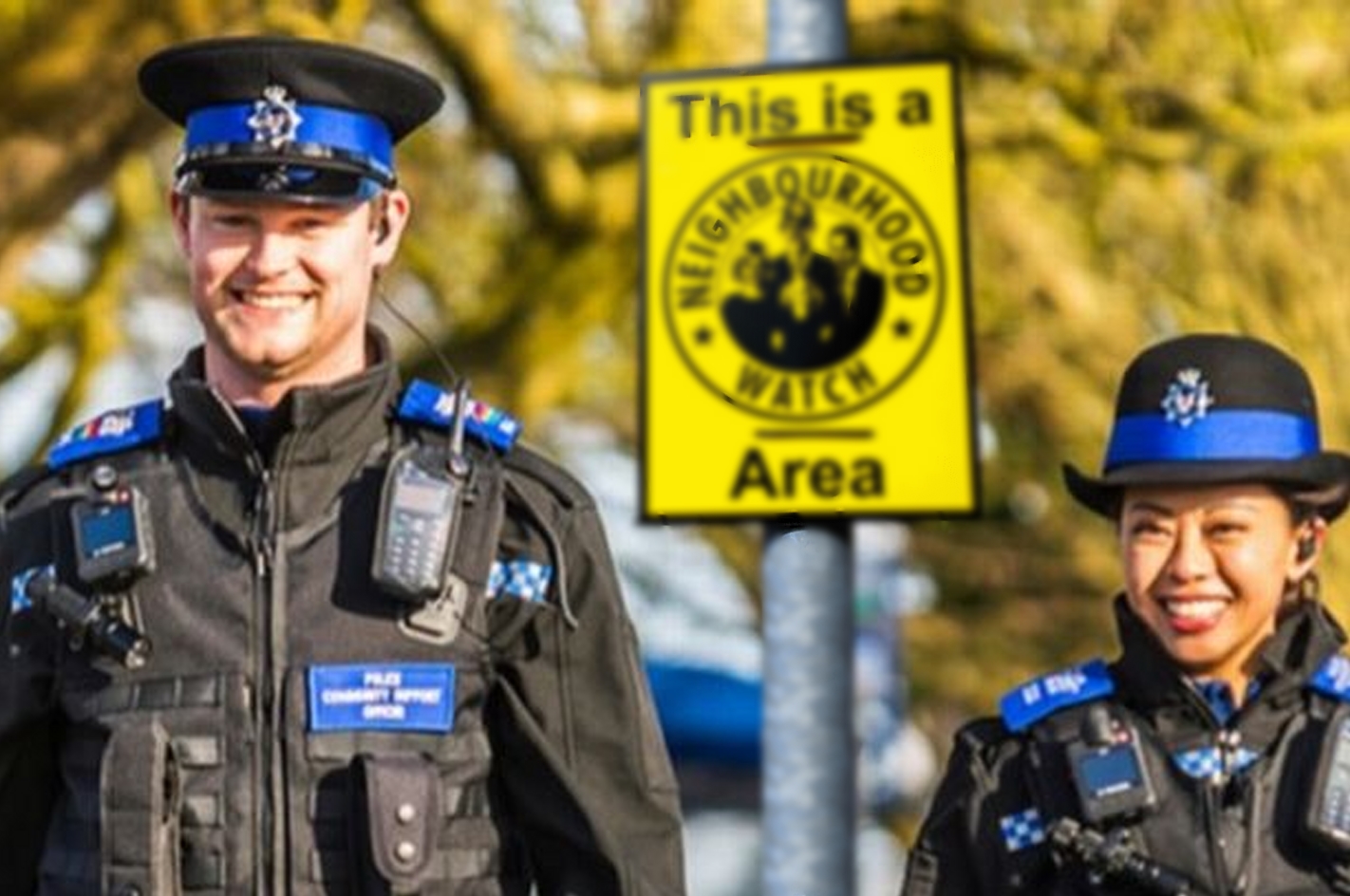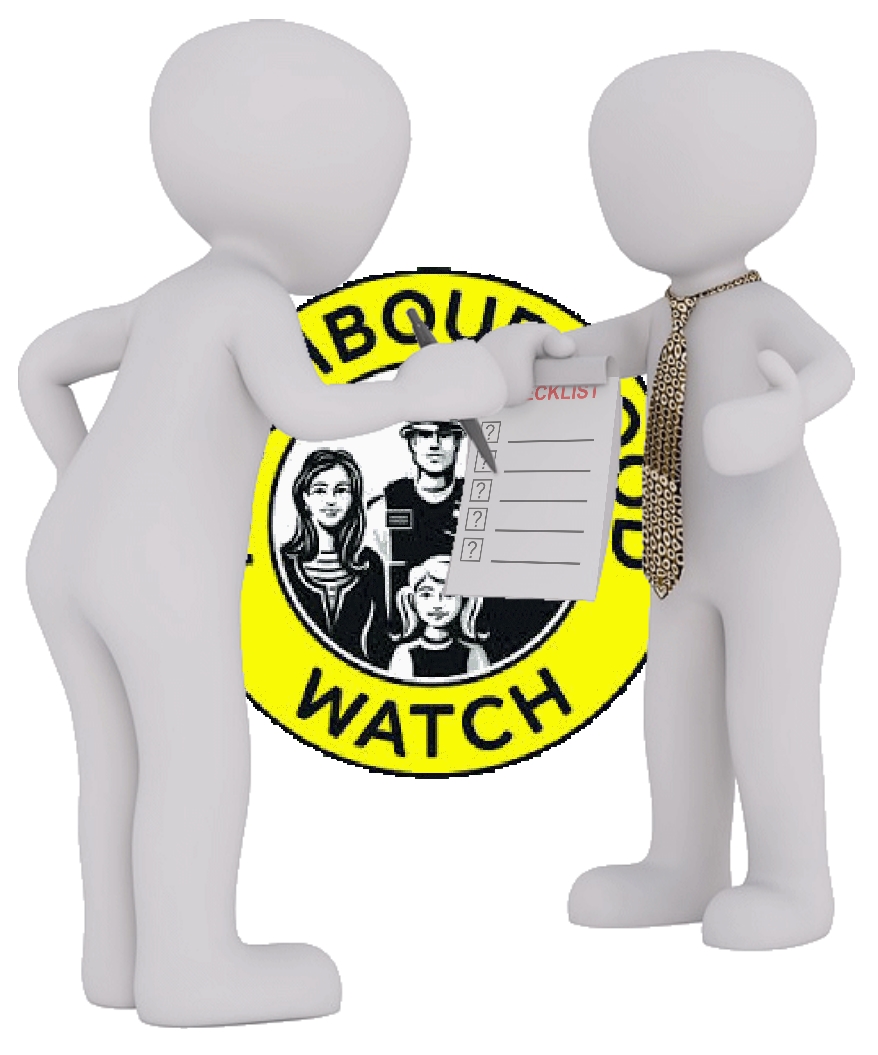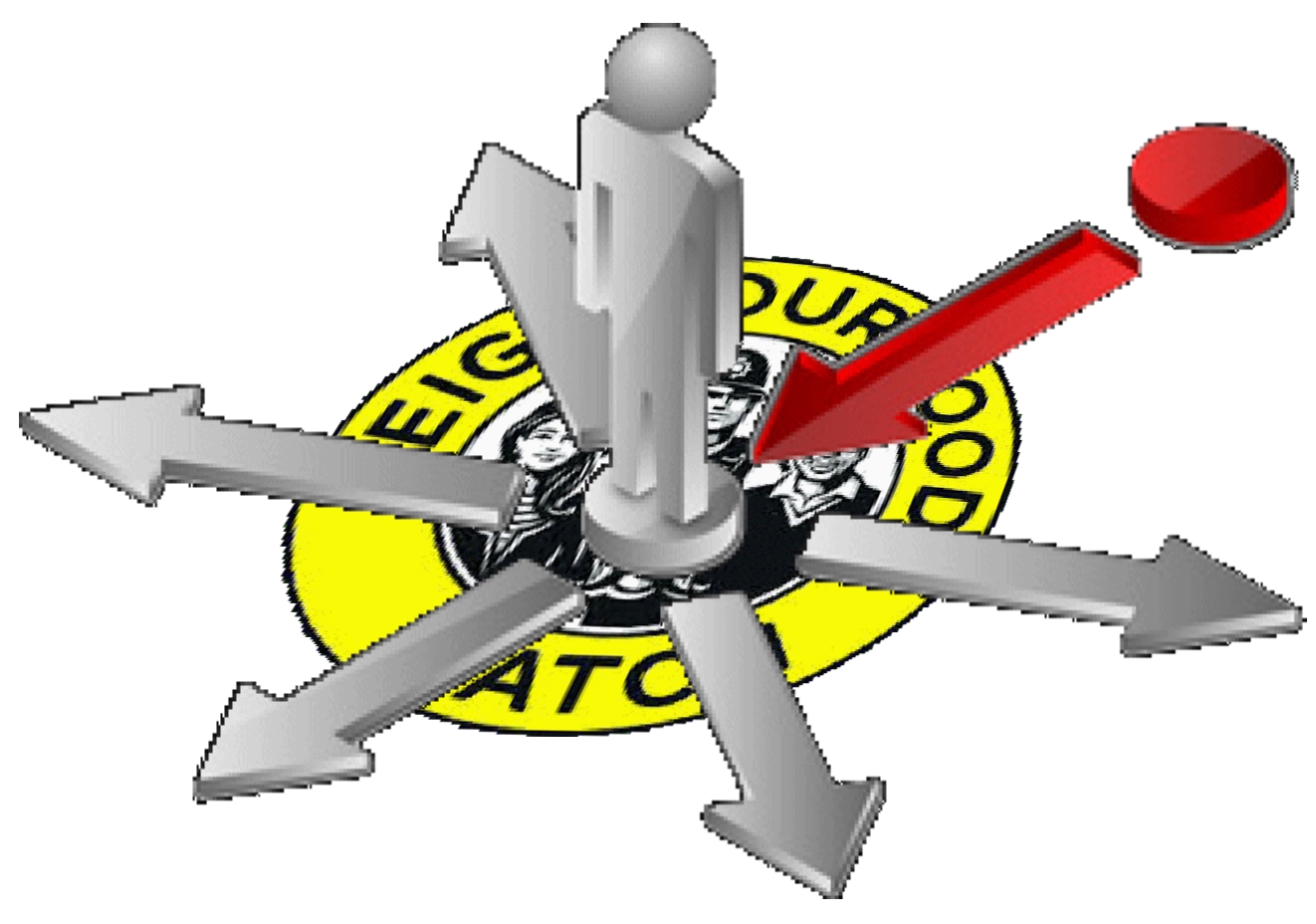An Introduction…
The first Neighbourhood Watch Scheme in this country was formed in a village near Chester in 1982. Today NHW is the largest voluntary organisation in the UK. There are more than 170,000 schemes in England and Wales, covering about 3.8 million member households – about one in seven households across the country. They work with each other and the Police to reduce crime and the fear of crime in their community.
 In Hampshire we have over 10,000 schemes covering over 300,000 homes. In a time of cuts, the Police can’t deal with all the problems and issues arising from crime and anti-social behaviour alone, they need the help of the whole community. NHW provides a way for local people to play an important part in addressing this balance and making their communities safer.
In Hampshire we have over 10,000 schemes covering over 300,000 homes. In a time of cuts, the Police can’t deal with all the problems and issues arising from crime and anti-social behaviour alone, they need the help of the whole community. NHW provides a way for local people to play an important part in addressing this balance and making their communities safer.
NHW is an all-volunteer organisation apart from a small administrative staff in the National Headquarters in Leicestershire. We are non-political and non-discriminatory in every respect.
Whilst neighbourhood schemes can exist independently there are benefits in being part of a Neighbourhood Watch structure that takes responsibility for the administration, servicing and development of schemes. Eastleigh Neighbourhood Watch Association does this for Eastleigh Borough which has about 300 schemes, with around 9,000 member households.
Similar associations exist in other parts of the county and together they make up the Hampshire & IoW Neighbourhood Watch Association (HINWA) which meets regularly with Police Headquarters staff.
What is NHW?
NHW is a community initiative, and so how it looks and works depends on what the members choose to do.
- A scheme is a group of residents or neighbours
- It can be as few as 5 homes or as many as 100 or more, depending on the layout of the street or residence but its size should be no bigger than the Coordinator can keep contact with on a regular basis
- One resident is elected to be the Scheme Coordinator and usually has a Deputy
 Why?
Why?
Neighbourhood Watch began life in the UK in response to rising crime, but today, as times change, it covers all aspects of keeping neighbourhoods safe.
Our main aims are to prevent crime, reduce the fear of crime, and to improve safety in the community. That means that, whilst combating crime remains our core aim, we also help out in other important ways that help protect our communities, such as during and after emergencies.
In 2017, then Minister for Vulnerability, Safeguarding and Countering Extremism Sarah Newton MP paid tribute to NHW and thanked our volunteers for their help in reducing traditional crimes such as burglary and car crime over the last three decades and asked them to now turn their attention to raising awareness of cybercrime, domestic violence, child abuse, human trafficking and extremism. You can view the full speech here.
All over the County communities face different challenges and different levels of crime.
NHW can help…
- Limit the opportunities for crime and anti-social behaviour through increased awareness and adoption of effective crime prevention measures, timely reporting of suspicious activities and identification and protection against current, new and emerging threats
- Encourage the prompt and confident identification and reporting of crimes, suspicious acts and other concerns
- Increase the ability for individuals and communities to be able to identify threats as well as protect themselves and others
- Get residents working together to increase the sense of community spirit
 How?
How?
- By joining or starting a NHW scheme
- By getting to know your neighbours
- By keeping an eye out for suspicious activity in the area and reporting it to the Police
- By being informed about any criminal activity in the neighbourhood – so you can protect yourself
- By getting advice on how to improve your home and personal security, including online
- By being encouraged to think about your vulnerable neighbours – who can attract crime to the area
- Through assistance of scheme coordinators who will find out the top concerns of the neighbourhood and together NHW can look for solutions to the problems
- By bringing people closer together and involving them in local life
Role of Coordinator:
- Keeping contact details of scheme members
- Welcome new residents, explain NHW and encourage them to join
- Have a system that allows information to be quickly distributed – i.e. warnings about crimes/incidents, scams etc. (this is best done by email)
- Encourage neighbours to inform the Police and then you, of any suspicious or criminal activity in the area so it can be passed onto the neighbours
- Encourage neighbours to talk to each other
- Arrange stalls at local events and socials for members
- Identify your vulnerable neighbours – keep in touch with them
The Coordinator receives a short advisory guide published by National Neighbourhood Watch in conjunction with the Police. Click here to view this document. A detailed Coordinator’s Handbook has also been produced by ENWA for Eastleigh Coordinators – this is available by request to the Chair (see later on How to Set up a Scheme).
 Role of Scheme Member:
Role of Scheme Member:
An effective scheme relies on the members looking out for each other.
A scheme member should:
- Make sure your home, vehicles and cycles are kept secure
- Always keep doors locked – whether you are in your house, garage or garden
- Make an effort to get to know your neighbours
- Take note of what’s going on around you. It’s not being nosey, it’s just trying to recognise what’s normal and what’s unusual
- Ask your neighbour to keep an eye on your property when you are out – and do the same for them
If you see something that worries you – whether it affects you or your neighbours – call the Police.
Reporting a suspicious person may not result in Police attendance – but it helps to build a picture for the Police.
